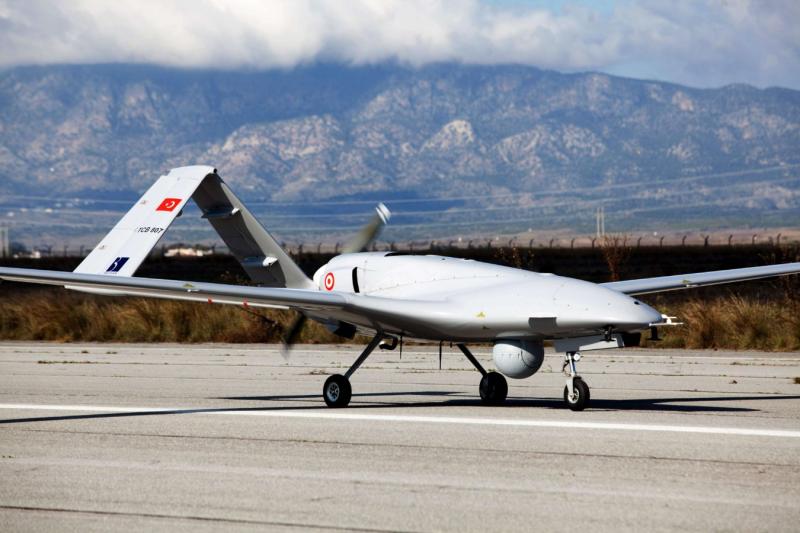
PEJOURNAL – Turkey, which intends to become self-sufficient in military equipment, has invested 35 billion dollars in the defense industry over four years. Taking those stages, Turkey became a military power by investing heavily in the elements of its hard power, in addition to expanding its soft power.
Turkey has become a militarily influential country with investments in the defense industry by conducting effective studies in the field of development and research. It became one of the most important countries in the world, especially in the field of reconnaissance drones and armed drones, after the United States. While Ankara supplied about 80 percent of its military hardware demands through imports in the early years of the 21st century, it claims that the ratio has dropped to 20 percent today. Turkey is now one of the world’s leading exporters in the field of defense industry.
Turkey has been developing drones domestically for the past decade. Ankara initially bought American and Israeli drones. But since the country is routinely involved with PKK Kurds in the south of the country and the use of drones is very important to them, so it developed drones inside the country to meet its demands.
Turkey needed two categories of drones. In the first stage, a small reconnaissance drone that can be launched and retrieved by hand, because Turkish experts and advisers during their visit to Israel had realized the effective use of those drones. Because those drones can be easily used by a soldier on the battlefield. The second group was the high-flying drones for patrolling the southern borders of the country.
The country designed various types of modern drones (UAVs) that weigh from a few kilograms to five tons. Turkey is the 7th country, after the United States, Russia, China, Israel, Pakistan and Iran, to independently design an offensive drone and use it in war. The main customers of Turkish weapons are Turkmenistan, Oman and Qatar.
The Bayraktar TB2 UAV, with its effective, lethal and cost-effective features, has made Turkey one of the leading countries in UAV technology, and its UAV strategy has shifted the balance of military power in the Middle East in Ankara’s favor. The Turkish military uses those drones on the battlefield more radically, densely and in a larger fleet. In Syria, for example, the Turkish drone fleet became a major air force.
Those drones have also been used in Libya and have been a military success for Turkey. The influence of Turkish armed and unarmed drones in Libya and Azerbaijan, and the victory of both countries, opened the door for trade with Turkish companies. In this regard, Libya and Azerbaijan have turned to Turkish companies to sign contracts for infrastructure, energy and contracting projects worth a total of 20 billion dollar. Erdogan has shifted the balance of power in Libya’s civil war in favor of the Siraj government, seeing it as the result of the use of Turkish-made drones.
Ankara began making unmanned aerial vehicles after the United States and its allies refused to send advanced aircraft and offensive weapons to Turkey. Outraged by his NATO allies, Turkish President Recep Tayyip Erdogan launched a wide-ranging plan to accelerate the development of the national defense industry.
Erdogan recently referred to a drone request by Saudi Arabia from Turkey at a joint press conference with the president of the Bosnian Presidential Council, and said that Riyadh had made a request to buy drones from Turkey. Erdogan even claimed that the country is one of the top three or four countries in the world in terms of making drone, and that Turkey has become a country that meets its demands and the needs of its allies in the field of land and sea equipment. He said: We are building 6 advanced submarines and from 2022 we will deliver one submarine every year.
Turkey is one of the 10 countries in the world that designs and builds its warships. The country has more than 700 defense projects, up from just 62 in 2002. Being strong militarily, economically and diplomatically is a necessity and not a choice. Turkey has to reach the highest level of deterrence, and this is necessary to ensure national security and defend its friends.
According to Ismail Demir, head of the Turkish Presidential Defense Industries Bureau (which has been sanctioned by the United States), Turkey’s major defense industry projects will continue. UAVs capable of launching air-to-air missiles are on the way, and Turkish warplanes will leave the hangar in 2023. In addition to current drones, larger drones capable of carrying heavier ammunition and capable of launching air-to-air missiles are on the way.
Erdogan reports that Turkey has made a number of gestures to reopen relations with Saudi Arabia and its allies after years of tension.
Cooperation between the Turkish company Vestel and the Saudi Defense Industries Company (Advanced Electronics Company [AEC]) in the field of selling Karayel UAVs and electronic components to Saudi Arabia have been running since 2017. According to a report published in the Turkish defense magazine (Defense Turk), the Saudi company Intra Defense Technologies is scheduled to start the production and maintenance of “Karail” drones in Saudi Arabia by the end of 2021 with an investment of 200 million dollars. Since the US President Biden’s administration banned Saudi Arabia from using US weapons in Yemen and Libya, Saudi officials have turned to Turkey to meet their drone needs.